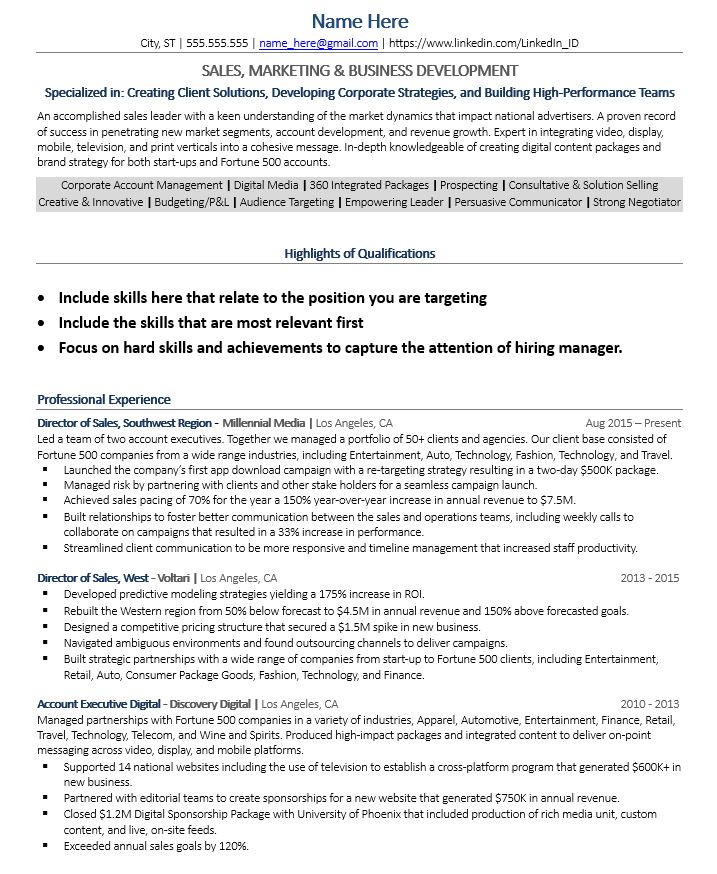How to Choose Which Jobs To List on Your Resume (+Examples and Tips)

9 min read

Searching for a new role is difficult at the best of times. But before you embark on that, you need to get your resume up to scratch. There are so many elements to creating that perfect resume, from including a succinct education section and professional development area, to incorporating powerful adjectives and knowing which is the very best font to use.
But probably one of the most important sections of your resume will be the Career Summary – also known as Professional Summary, Work Experience, or Professional Experience. It forms the meaty part of the document and requires lots of consideration and careful thought when compiling.
The overriding question is, “Do you have to put every job on your resume?” It’s a tough one. There are so many variables, and ways of approaching this, so hunker down, and let’s get real with what to include and what not to include within the career section of your resume.
But let’s first remember that the main purpose of a resume is to show that you’re qualified for the particular position you're applying for, not to provide an overview of your entire work history. With that in mind, we will show you situations where you can safely leave some of your work experience off your resume.
Do you have to put every job on your resume?
There is no requirement or rule that says you have to include all of your past work experience on your resume. In fact, including every single job you have ever had on your resume could do more harm than good in most cases. For example, say you are a Senior Marketing Manager aiming for a Director of Marketing post. You are experienced, savvy, and knowledgeable. No one is going to be interested in the hospital porter job you had while at college, way back in the early 2000s.
So let’s go through certain situations where there is no need to include a particular job on a resume.
Short-term employment
If you were employed for less than six months, it’s sometimes better to leave that job off your resume.
Why?
Because short-term employment can be a red flag to hiring managers. They may think that you were either fired for poor performance or that you’re a job hopper unable to settle into any one position, which isn’t a good impression to make on a potential employer.
When should you include short-term employment?
You can include short-term employment if you gained experience and skills that are relevant to the position you’re applying for. It is a pertinent idea to include the reason for this short-term employment within your cover letter.
For example:
“My most recent position at XYZ Corporation was cut short due to the company shutting down. I was, however, able to reduce overhead expenses by 14% during my tenure.”
Expert Tip
Pro Tip: Including a position where you were employed for under three months should almost never be listed on your resume unless it was a contract position.
Experience that is over 10 to 15 years old
The rule, in 2023, is that hiring managers aren’t interested in roles you did over 10 to 15 years ago, so these roles are unnecessary and best left off your resume. You can usually incorporate the skills you’ve gained in more recent work experience.
Unfortunately, age discrimination does happen and could have a negative impact on your job search. If your resume goes back 20, or even 30 years, you risk being seen as either overqualified, not up-to-date on emerging tech skills, or just too expensive for the job you’re applying for.
You only have a few seconds for your resume to impress, so you want to ensure it is clear and concise from the outset.
For more details, check out our post on how many years of work experience to include on a resume.
Regarding the question about whether you have to put every job on your resume, when should you include older roles?
Irrelevant experience
Submitting a resume with a ton of irrelevant experience won’t land you interviews. When asking, “Do you have to put every job on your resume,” leave off older positions that aren’t relevant to the position you’re targeting.
If most of your experience is irrelevant or you’re making a career change, then a hybrid resume format may be more effective. This allows you to focus on relevant key skills and education rather than your work history.
Here is an example of a hybrid resume:

Numerous part-time roles
There’s nothing wrong with including part-time positions on your resume – but there are times when they should be omitted. If you had a part-time position alongside a full-time one, there’s no need to include the part-time one, unless it gave you major skills that no other job has.
It’s also okay to leave off any indication as to whether a job was part-time or full-time. If you had two part-time roles simultaneously, you can just include one of them if need be.
A role where you were sacked
This is a tricky one. If you were fired and left the organization under a cloud, it would be wise to leave this role off. But this can bring its own problems, as it might leave you with an employment gap. You can reduce gaps by putting years for roles, rather than months and years, to mitigate red flags.
As the reasons for leaving jobs aren’t necessarily included on resumes nowadays, being seen as being a waste of a line, you could include a role where you garnered many skills along the way, even if you were sacked at the end of it. But be prepared to answer sticky questions during an interview if the issue arises.
So which roles should you include?
In short, you should include anything relevant, up-to-date, and that shows off your best talents – it’s kind of the reverse of the above. The aim is to keep the hiring manager’s focus on your compelling attributes while structuring your resume in such a way that you reduce irrelevant roles, and omit old, outdated positions.
Follow these rules to decide if a position is relevant or not:
Seek out the skills you need to fit the role in the job advertisement
Write these down in a column
Create a second column to demonstrate when you used these skills in your current or most recent roles
Add in the positions in which you used these relevant skills into the work experience part of your resume
Pro Tip: If you have had a mixed career, full of different types of roles from various sectors, section out the Career Summary of your resume into two distinct portions:
Relevant Experience, where you include related roles.
Transferable Experience, where you include unrelated roles.
For short-term jobs that were contracts or freelance work, you could list them under a separate heading, such as “Contract Work” or “Freelance Work.”
Another way is to place them in a line under the rest of the Career Summary in italics, such as:
Previously employed as Project Manager for Kutts Bank (New York, NY), Network Designer for HBC Inc. (Jackson Hole, WY), and Implementation Manager for Zen Gardens (Victor, ID).
If you don’t have much, or any, relevant experience that relates to the job you are targeting, you will need to emphasize other aspects on your resume. This is especially true if you’re switching careers, or are entry-level (i.e., just starting out in your career).
Add on internships or volunteering: There will be many transferable skills you can draw attention to in order to show a prospective employer that you’ve got what it takes, this includes adding on volunteer work or any internships you’ve done.
Include coursework: This includes modules, dissertations, and theses you have completed during your studies. It shows how up-to-date you are with industry knowledge and changes.
Pinpoint your skills: With little experience, consider drafting a functional resume, as this is a document that highlights relevant skills, as opposed to career progression, so you can justify why you’d be great for the job at hand.
How to explain about a role you haven’t included
If the fact that there are missing positions on your resume comes up in an interview, you can explain that the reason they were left off is because you didn’t feel they were relevant to this role, and where you are headed career-wise. You could even, rather cheekily, add that you only took on the role to make some money while scouting around for a more suitable position, such as the one you’re interviewing for at the moment!
Do you have to put every job on a job application form?
As we have covered the subject on do you have to put every job on your resume, what about job application forms? There are big differences between resumes and job applications. The main one is that a resume is something you have created yourself, and therefore, you can include – and not include – what you jolly well like! There are no employment laws that state you have to include every single bit of work experience that you have ever done going back to the 1990s!
Pro Tip: For a federal resume, there are rules about what to include, so you need to check out what you’ll need for those if you decide you want to work for the US government.
A job application may state that you have to list all work experience, including work you might feel is irrelevant, contract work, or short-term engagements. So you should do this. Otherwise, a prospective employer might find out you’ve withheld information when conducting background checks.
Skills will win the day
So, do you have to put every job on your resume? The short answer is no, you don’t need to. Having many short-term jobs or irrelevant experiences included on your resume could mean you end up in the “No” pile time and time again. The hiring manager reviewing your resume isn’t looking to see if you’ve included all of your jobs, they’re looking to see if you have the right skills and experience to get the job done. That means remembering to focus on the skills and experience that show you’re a good fit for the position.
Readability and relevance are two of the most important factors for your resume. If you’re still unsure how to approach the question, “Do you have to put every job on your resume?” check out ZipJob’s free resume review tool for the answers. This will go towards making sure your resume will pass an ATS scan as well. Give it a try today!
Recommended reading:
30 Strengths to Put on a Resume or Mention in a Job Interview
Recommendations and Reviews: Should You Include Them on Your Resume?

Written by
Elizabeth Openshaw, Editor & Content Writer, Elizabeth Openshaw, Editor & Content Writer
Elizabeth Openshaw is an Elite CV Consultant with over 12 years of experience based in Brighton, UK, with an English degree and an addiction to Wordle! She is a former Journalist of 17 years with the claim to fame that she interviewed three times Grand Slam winner and former World No.1 tennis player, Andy Murray, when he was just 14 years old. You can connect with her at Elizabeth Openshaw | LinkedIn.
